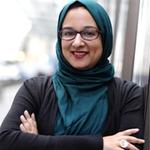How We Can Use Ustadha Maryam Amir's Qariah App to Better Connect with the Quran
Community
|
Apr 11, 2022
|
10 MIN READ
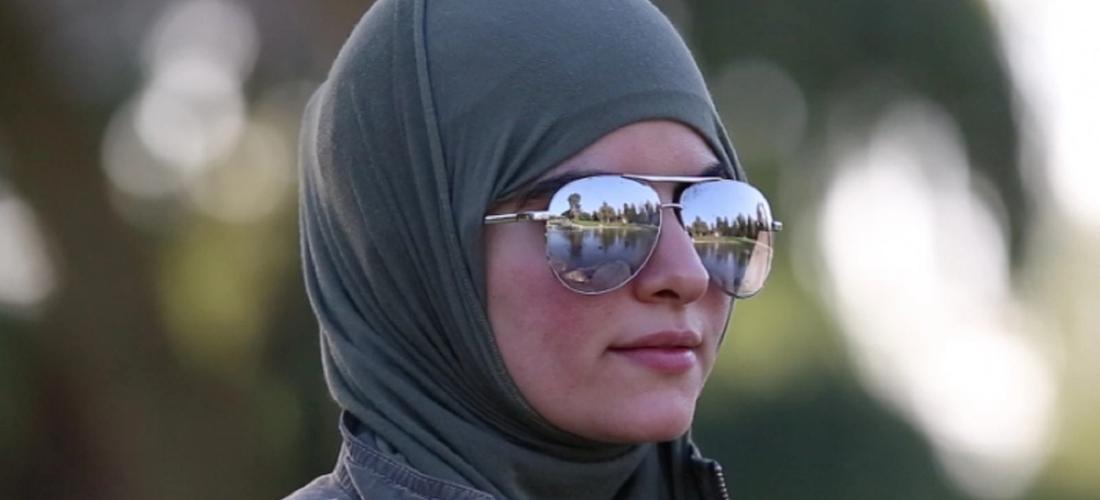
Image source: LaunchGood
When Ustadha Maryam Amir first heard a teenage girl reciting the Quran at an interfaith event years ago, she was shocked and even recoiled, assuming that it was religiously forbidden for women to be in such a role because she hadn’t seen it before. She went to the event organizer and told her that it was inappropriate for a girl to recite the Quran in a public capacity. The organizer, who had immigrated to the United States from Indonesia, kindly told her, “In Indonesia, women recite the Quran on television, in conferences, in competitions; it is the norm for women to be Quran reciters.”
This was an eye-opener for Ustadha Maryam, and she continued to be surprised and amazed to see women reciters in various capacities as she continued her studies in Egypt. Upon her return to the U.S as she was working on her master’s degree, she studied to be a hafidha (a woman who memorizes the Quran) under the tutelage of Shaykh Moheb Fouda, who asked her to recite the Quran as the opening reciter at a year-end banquet.
Ustadha Maryam recalls saying to him in shock, “‘But … I’m a woman!’ He got so angry. He replied, ‘Maryam! Don’t you know that women have been Quran reciters throughout Islamic history? Don’t you know that some of the most famed men Quran reciters were taught by women? This is our history! This is Islamic legacy! Women as Quran reciters!’”
This began a period of research, personal encounters and the absorbing of countless stories shared with her by women who were moved when they heard her recite at numerous events – learning just as she did that indeed, women can become a Qariah (a skilled reciter of the Quran), which has led her on a nearly two-year journey to create “Qariah: The Women Quran Reciters App.” The app launched this Ramadan and brings Quran recitations from women all over the world to your phone.
I spoke with Ustadha Maryam for this detailed interview in which we got into the details of the Qariah app. (Click here for part one, where she shares the extraordinary story of how she learned about the need for women reciters of the Quran to be united in a shared space.)
In part two of our interview, Ustadha Maryam tells us how she gathered such a beautiful collection of Qariahs for the app, how can we use it to strengthen our ibadah (worship) in Ramadan, and what she has to say to naysayers who argue that women’s voices are awrah (to be kept hidden).
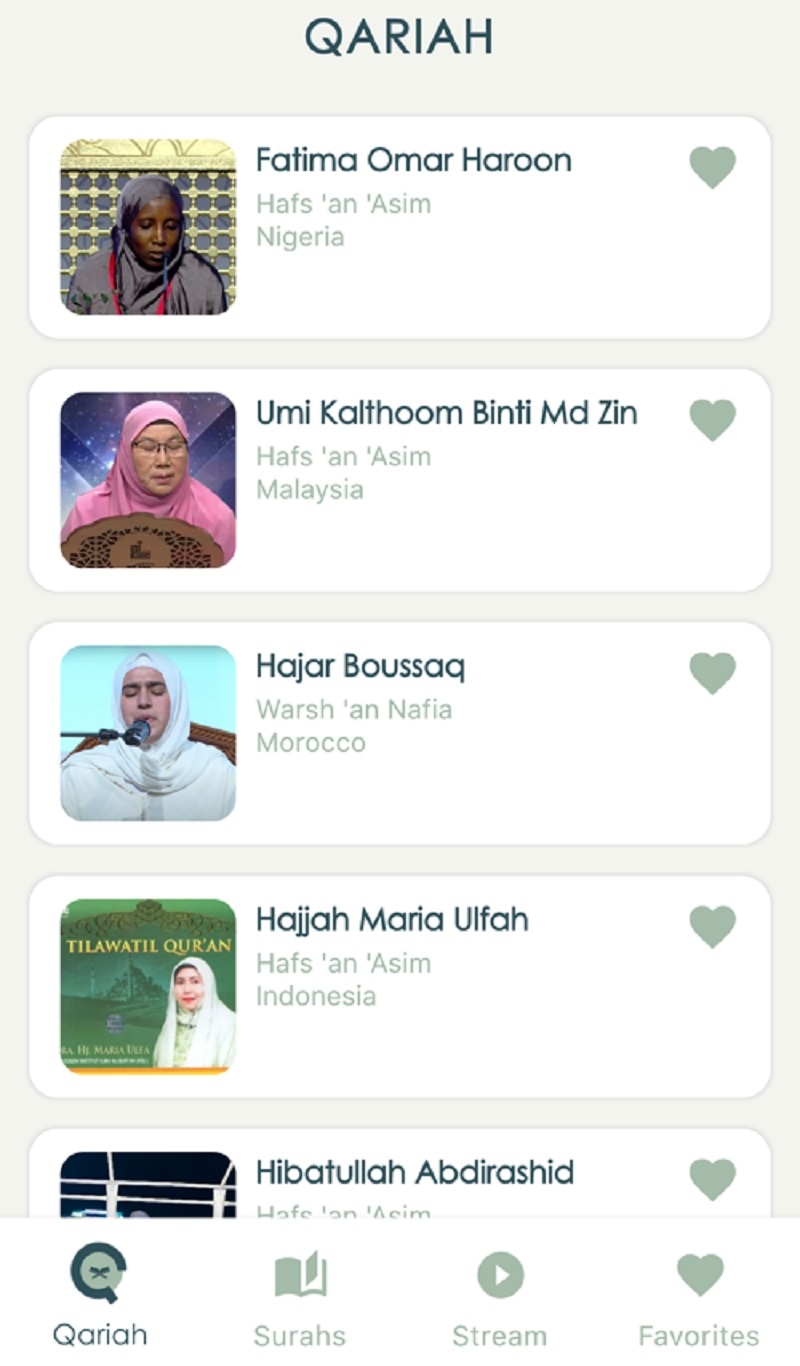
So once you knew how much of a need there was for a gathering space for women reciters of the Quran, how did you pull it together into the Qariah App?
In about the year since [the #FOREMOTHERS campaign on instagram], we’ve sent mics to countries all over the world, and we now have about 60 women reciters recording for the app. The women are born Muslims and converts, typically abled and disabled (three of the Qariahs are blind and two have Down syndrome) and are of all racial, ethnic and cultural backgrounds. Currently there is only one known full recording of the Quran by a woman, Hajjah Maria Ulfah, who is also featured on our app. It is our goal to produce a number of full recordings of the Quran within the next two years, while updating each Qariah’s page constantly every time she’s finished a new recording until she hits the completion.
Already, the response has been incredible. We’ve had websites that feature male reciters reach out to us and ask if we would be willing to work with them and share the database of women’s recitations, because they’re interested in hosting on their platforms. We’ve had religious scholars, who are internationally recognized, reach out and ask if we would consider working with them to develop curriculum or other teaching tools, which include the recitations.
We are so grateful for the attention and pray that [this app is] embraced with love. This free app aims to mainstream the use of the word Qariah in countries where it is an unheard of concept, so that when little girls ask, “Why are there no women Quran reciters?” The answer will be a resounding, “There are an uncountable number of them – and God willing, you and I can become them too!”
Why was it important to you to develop an app that centers female Qariahs?
Women in the West especially NEED to see other women recite the Quran. And many women in the West cannot go to the masjid because there is not a masjid within one hour’s distance, or because they have many children and children are not allowed in the masjid, or because women have said they were told they should pray in the dressing room down the street at the mall because there was no prayer room for women. For women who never see other women as Quran reciters or Shaykhaat or people of knowledge, [we] need to see other women to know that the Quran is for us – how to approach the Quran, how to teach our children the Quran!
Tell us how this app works! How long did it take to develop it? How did it evolve in its iterations?
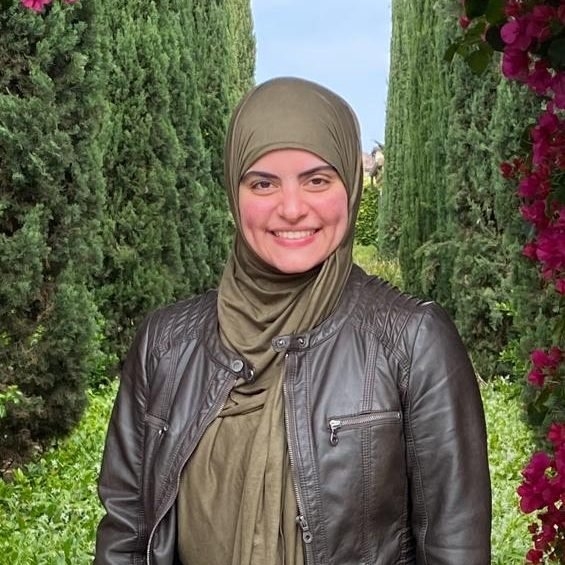
Ustadha Maryam Amir; Image source: Yaqeen Institute
The app has two sections you can explore: Qariahs and surahs. You can go to a Qariah’s page and listen to the recitations she has available, or you can choose a surah and explore which Qariahs have that specific surah recorded. It is a three-year goal for us to have a number of women finish the entire Quran, Insha’Allah, so recitations will continuously be uploaded as the Qariahs complete recitations, Insha’Allah. There is also a stream option where the app will randomly pick surahs by different Qariahs for you, as well as a favorites tab! There are many changes we are planning for future releases, Insha’Allah, but the app in its basic form is available now for free on both Apple and Google Play stores.
Some people and scholars argue that a Muslim woman’s voice is awrah, or too intimate to be heard in public. What is your take on this, and how does this app shatter this notion?
If a reader is asking this question, it is likely they do not live in Indonesia, Algeria, Morocco, Malaysia, Nigeria, Tunisia, Yemen, Singapore or some parts of Tanzania :) In those countries, women’s public recitation is part of the cultural norm; women recite on television, in public competitions, in weddings and conferences and ceremonies, as approved by and facilitated by the Islamic scholars of those areas. Egypt also used to be one of these countries, with women Quran reciters famed on the radio and in religious and social gatherings until the fatwa (a religious ruling) in the mid 1900s, which Dar al Ifta more recently changed.
Watch this Tik-Tok by Ustadha Maryam in which she addresses those who suggested it would be better not to put out a women's Quran reciters app.
@themaryamamir download at www.Qariah.app #muslimtiktok #islamictiktok #muslim #quran #ramadan ♬ original sound - Maryam Amir
So this app doesn’t really shatter anything if a woman is from one of those regions. In fact, when I announced the app and we started getting pushback from some people in the U.S. and I shared that information with the Qariahs, the response from the Qariahs from Nigeria, Morocco and Singapore was sincere confusion. When I explained in our region, women never recite in front of men as part of our cultural norm they asked, “Why not? We’ve never heard it is not permissible before. We've never heard that before.” Again, this is their norm, as supported and encouraged by their senior scholars. This is literally what they’ve grown up with since they were children.
For them, this app isn’t new. It’s simply putting women’s voices in one place instead of scattered on YouTube or their personal social media channels. Look up Qariahs on Instagram or TikTok such as Farhatul Fairuzah from Malayisa or Hajar Boussaq from Morocco or Saadah bint Mufadil from Nigeria or Atiiqah Suhaimi from Singapore or Chaymae Yousfi and Farah Amchichou from Morocco or Hajar Hniti from Spain or Meriem Guerroumi from Algeria. All of them and many more are Quran influencers with platforms where they post their public recitations as approved by scholars, and some of them themselves ARE the scholars who men and women alike consult!
This app is for women, by women. It is not intended to be for men. Men can simply not download the app and problem solved. But on the point of women’s public recitation, I have a detailed FAQ on the app’s landing page that, Insha’Allah, address the fiqh and all the frequently asked questions relating to this science for any interested readers on what the Quran, sunnah and scholars have said on this issue.
How can we use this app to help us strengthen our Ramadan worship?
This Ramadan, immerse yourself in listening to the Quran. It can be through the Qariah app and you can hear women’s recitations, or it can be through any other venue; and you of course can listen to men’s incredible recitations. I think one unique aspect that you may experience when using the app is that it may fill a part of your heart you did not know you needed to be filled, Insha’Allah. And the more you explore the different qira’aat and types of recitation styles, the more I think you’ll find yourself amazed at the depth of women’s knowledge in the Quran. So … listen, listen, listen! :)
Talk to us about what it takes to become a Qariah or a Qari. How does one get that title? What does it entail, and how is it different from being a hafidh? Are there Qariahs who are hafidh? Or hafidh who isn't a Qariah?
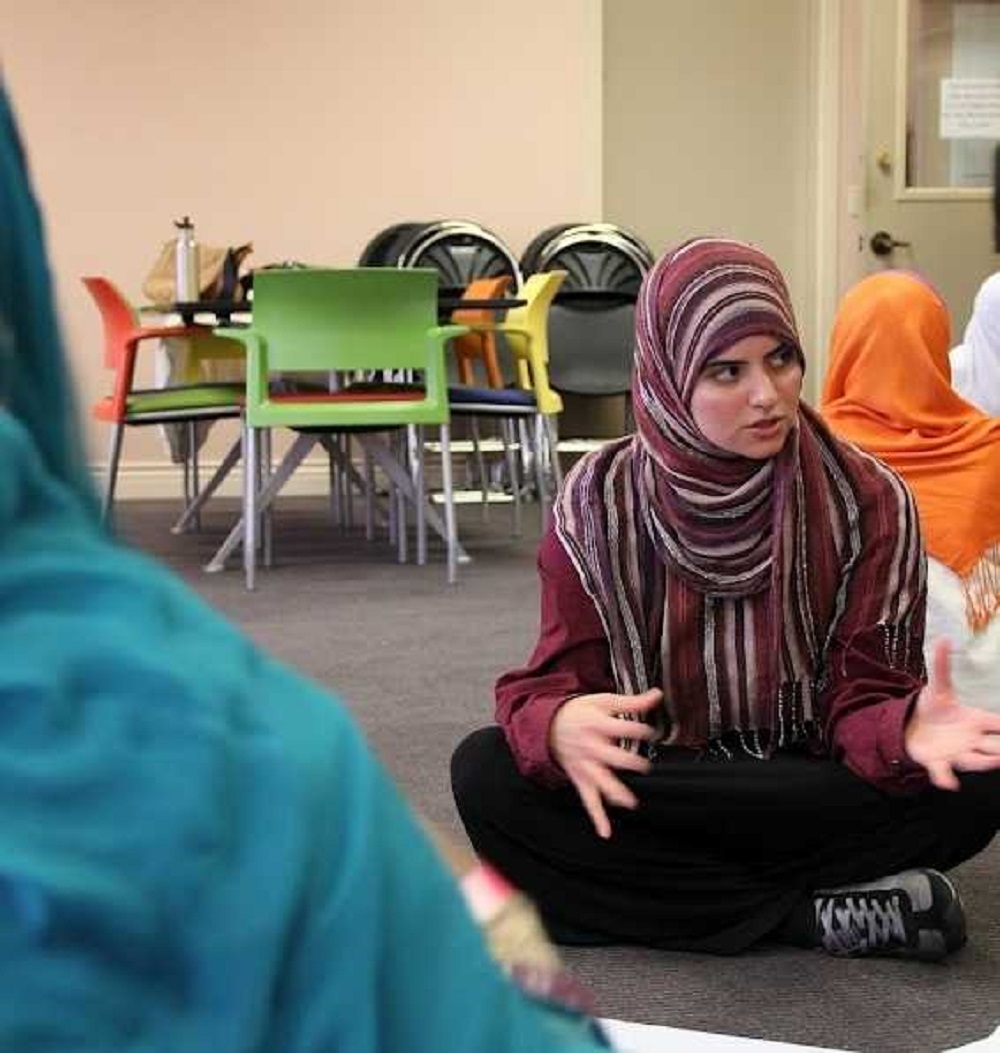
A Qariah is a woman Quran reciter; a Qari is a man reciter. Anyone who recites the Quran can be a Qariah, but in an official capacity the term is generally titled to those whose recitations are perfected and also often public – whether in general society or for women where it is not culturally acceptable or where the opinion is followed that it is not permissible that women recite publicly, in women’s only circles. A hafidha (woman who has memorized the Quran) is also a Qariah, but she may not actually have practiced BEING a Qariah. And a Qariah can be one without being a hafidha.
The out loud recitation, the public recitation in front of others, whether in general society or in private spaces – is really a skill that needs to be honed.
[Becoming a Qariah] is different from recitation as one is memorizing the Quran to then recite aloud and review with a teacher. It is an entire science, and there are arts, such as maqamat (a system of pitches and melodic elements),that are developed just to express the power of the range of emotions the verses can induce; an entire field dedicated to teaching how to recite an ayah with a tone of sadness, joy, fear or hope. And in countries like Morocco, Malaysia, Algeria, Singapore, Yemen, Nigeria and others, when you see the types of women reciters from those regions and hear their recitation – it is on a totally different level than me, just your random woman trying to work on perfecting my Quran.
Women in those countries recite on television and recite on stages – they have practiced reciting in ways that are simply different from reciting quietly in your room or just to your teacher. Women in Syria who recite only in women’s groups but lead tarawih or qiyams – they have PRACTICED in a way different from someone just reciting, and her voice is a whisper. So on a general level, anyone can be a reciter of the Quran. But to truly immerse oneself in the practice of reciting in such a way that will impart the power of the emotion in the meanings – this is a skill that takes years of study and practice.
Why is it so important for us as a community to have this app and center Qariahs?
Since embarking on the creation of the app, I haven’t listened to a single male reciter! And it isn’t because men are not AMAZING reciters; they are our teachers and they are incredible tabarak Allah! But I just can’t stop listening to women’s recitations. It’s like my ears are addicted and my heart just wants more and more and more. And that has been so surprising for me. Because for years I have listened to men's recitations daily and have been so overwhelmed by the beauty and power of the recitation. And yet even myself, who wasn't specifically seeking out women's recitation "just" to hear other women – I am overwhelmed by the recitation of the Quran from women's voices.
[Think about] women who hear the Quran for the first time. To hear the powerful recitation of Hajjah Umm Kalthom from Malaysia, who sounds exactly like a [female] version of Abdul Baset; to hear the recitation of Soumia Almir, who sounds like Saad Al Ghamidi’s recitation, to hear women from all over the world and know that she has a chance for the Quran too – this is life changing.
Also, how can some lament the state of women in our ummah – how much longer are we going to make broad claims on how women are “dazzled by the temptation of this life” and their “obsession with beauty and not wearing hijab and wearing tight, revealing clothing and wearing make-up” as some of the most critical issues we obsess over in our community discussions, and yet not even ADDRESS the fact that women are LITERALLY shoved out of some spaces of worship that they come to, seeking knowledge, seeking connection, seeking community?
How can we not even see the direct connection between women not even knowing the Quran is also a space for them and the pain and confusion women feel oftentimes when related to issues of Muslim community space and faith? It’s all connected.
Read part one of our interview with Ustadha Maryam Amir here, and check out the Qariah App website to learn more and how to download it to your smartphone!
Subscribe to be the first to know about new product releases, styling ideas and more.
What products are you interested in?

